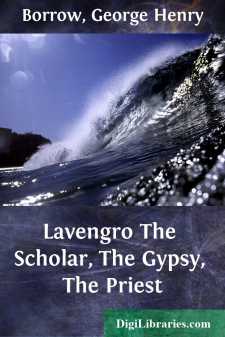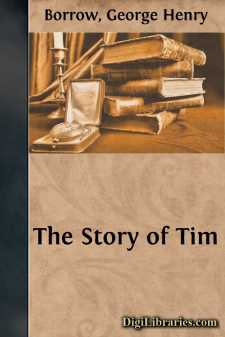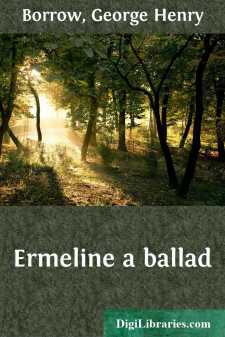Categories
- Antiques & Collectibles 13
- Architecture 36
- Art 48
- Bibles 22
- Biography & Autobiography 813
- Body, Mind & Spirit 142
- Business & Economics 28
- Children's Books 17
- Children's Fiction 14
- Computers 4
- Cooking 94
- Crafts & Hobbies 4
- Drama 346
- Education 46
- Family & Relationships 57
- Fiction 11829
- Games 19
- Gardening 17
- Health & Fitness 34
- History 1377
- House & Home 1
- Humor 147
- Juvenile Fiction 1873
- Juvenile Nonfiction 202
- Language Arts & Disciplines 88
- Law 16
- Literary Collections 686
- Literary Criticism 179
- Mathematics 13
- Medical 41
- Music 40
- Nature 179
- Non-Classifiable 1768
- Performing Arts 7
- Periodicals 1453
- Philosophy 64
- Photography 2
- Poetry 896
- Political Science 203
- Psychology 42
- Reference 154
- Religion 513
- Science 126
- Self-Help 84
- Social Science 81
- Sports & Recreation 34
- Study Aids 3
- Technology & Engineering 59
- Transportation 23
- Travel 463
- True Crime 29
The Romany Rye a sequel to "Lavengro"
Description:
Excerpt
ADVERTISEMENT.
It having been frequently stated in print that the book called “Lavengro” was got up expressly against the popish agitation, in the years 1850-51, the author takes this opportunity of saying that the principal part of that book was written in the year ’43, that the whole of it was completed before the termination of the year ’46, and that it was in the hands of the publisher in the year ’48. And here he cannot forbear observing, that it was the duty of that publisher to have rebutted a statement which he knew to be a calumny; and also to have set the public right on another point dealt with in the Appendix to the present work, more especially as he was the proprietor of a review enjoying, however undeservedly, a certain sale and reputation.
“But take your own part, boy!
For if you don’t, no one will take it for you.”
With respect to “Lavengro,” the author feels that he has no reason to be ashamed of it. In writing that book he did his duty, by pointing out to his country people the nonsense which, to the greater part of them, is as the breath of their nostrils, and which, if indulged in, as it probably will be, to the same extent as hitherto, will, within a very few years, bring the land which he most loves beneath a foreign yoke: he does not here allude to the yoke of Rome.
Instead of being ashamed, has he not rather cause to be proud of a book which has had the honour of being rancorously abused and execrated by the very people of whom the country has least reason to be proud?
One day Cogia Efendy went to a bridal festival. The masters of the feast, observing his old and coarse apparel, paid him no consideration whatever. The Cogia saw that he had no chance of notice; so going out, he hurried to his house, and, putting on a splendid pelisse, returned to the place of festival. No sooner did he enter the door than the masters advanced to meet him, and saying, “Welcome, Cogia Efendy,” with all imaginable honour and reverence, placed him at the head of the table, and said, “Please to eat, Lord Cogia.” Forthwith the Cogia, taking hold of one of the furs of his pelisse, said, “Welcome, my pelisse; please to eat, my lord.” The masters looking at the Cogia with great surprise, said, “What are you about?” Whereupon the Cogia replied, “As it is quite evident that all the honour paid is paid to my pelisse, I think it ought to have some food too.”—Pleasantries of the Cogia Nasr Eddin Efendi.
When the publishers of “The Minerva Library” invited me to write a few introductory words to this edition of Borrow’s “Romany Rye,” I hesitated at first about undertaking the task. For, notwithstanding the kind reception that my “Notes upon George Borrow” prefixed to their edition of “Lavengro” met with from the public and the Press, I shrank from associating again my own name with the name of a friend who is now an English classic. But no sooner had I determined not to say any more about my relations with Borrow than circumstances arose that impelled me, as a matter of duty, to do so. Ever since the publication of Dr. Knapp’s memoirs of Borrow attacks upon his memory have been appearing—attacks which only those who knew him can repel.
His has indeed been a fantastic fate! When the shortcomings of any illustrious man save Borrow are under discussion, “les défauts de ses qualités” is the criticism—wise as charitable—which they evoke. Yes, each one is allowed to have his angularities save Borrow. Each one is allowed to show his own pet unpleasant facets of character now and then—allowed to show them as inevitable foils to the pleasant ones—save Borrow. His weaknesses no one ever condones. During his lifetime his faults were for ever chafing and irritating his acquaintances, and now that he and they are all dead these faults of his seem to be chafing and irritating people of another generation. A fantastic fate, I say, for him who was so interesting to some of us!
One writer assails him on account of his own ill-judged and unwarrantable attacks upon a far greater man than himself—Sir Walter Scott; another on account of his “no-popery” diatribes; another on account of his amusing anger over “Charley o’er the Waterism.”
When Mr. Murray’s new and admirable edition of “The Romany Rye” came out this year, a review of the book appeared in the Daily Chronicle, in which vitality was given—given by one of the most genial as well as brilliant and picturesque writers of our time—to all the old misrepresentations of Borrow and also to a good many new ones. The fact that this review came from so distinguished a writer as Dr....












